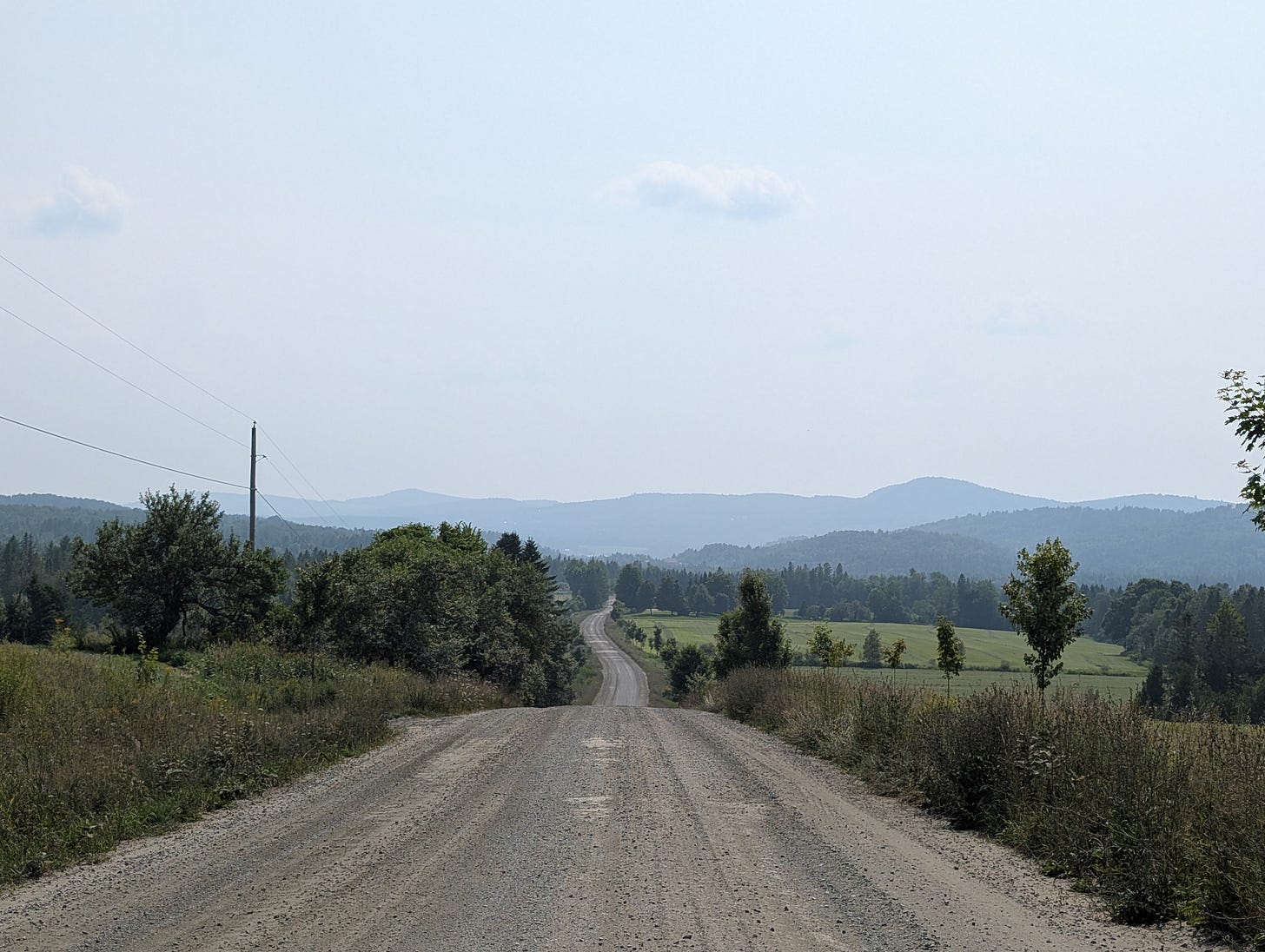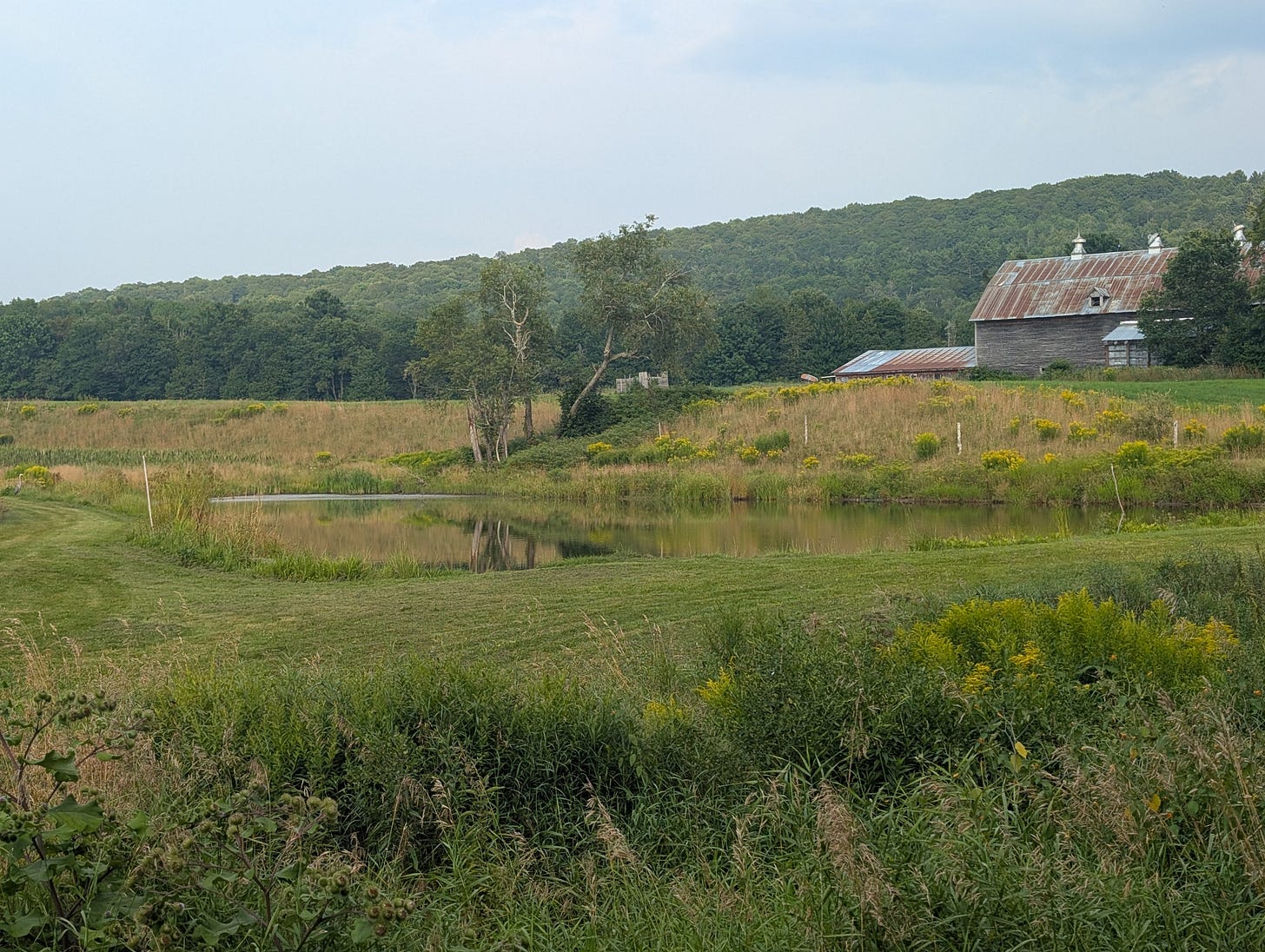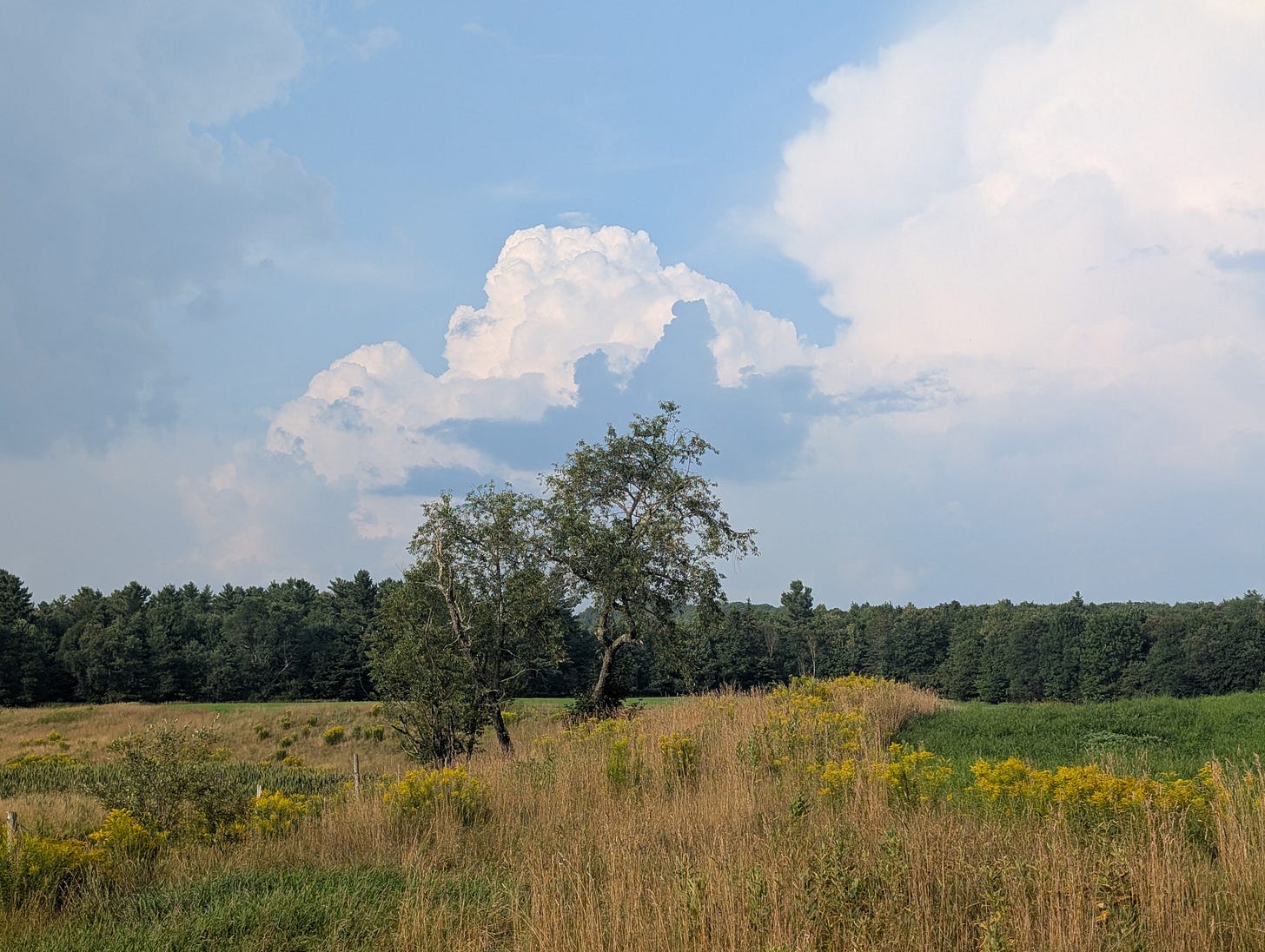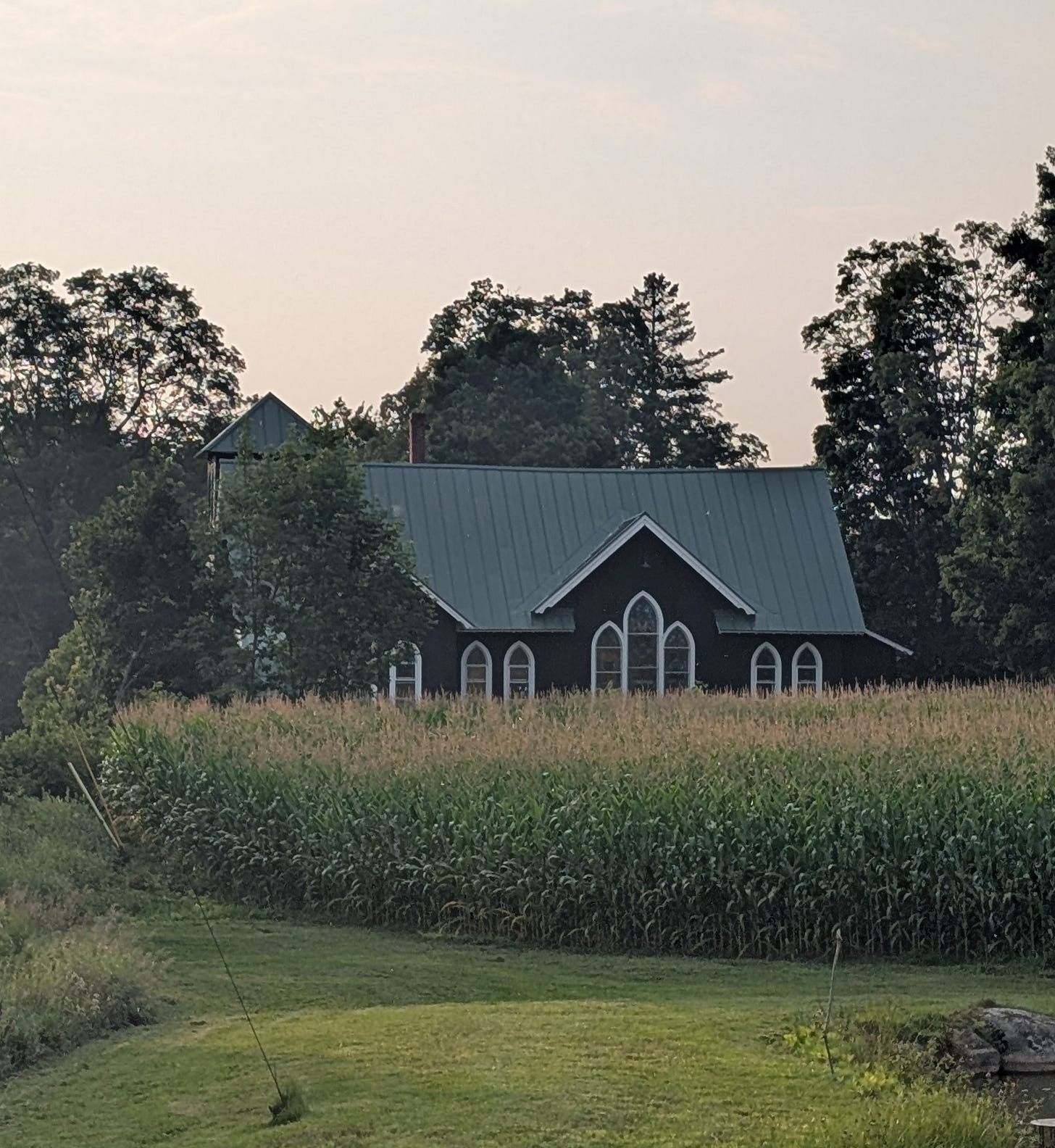By (the Music of) Faith
The song that seeks home
Now faith is the assurance of things hoped for, the conviction of things not seen. Indeed, by faith our ancestors received approval. By faith we understand that the worlds were prepared by the word of God, so that what is seen was made from things that are not visible.
By faith Abel offered to God a more acceptable sacrifice than Cain’s…By faith Enoch was taken so that he did not experience death, and “he was not found, because God had taken him”… By faith Noah, warned by God about events as yet unseen, respected the warning and built an ark to save his household; by this he condemned the world and became an heir to the righteousness that is in accordance with faith. By faith Abraham obeyed when he was called to set out for a place that he was to receive as an inheritance, and he set out, not knowing where he was going. By faith he stayed for a time in the land he had been promised, as in a foreign land, living in tents, as did Isaac and Jacob, who were heirs with him of the same promise. For he looked forward to the city that has foundations, whose architect and builder is God. By faith, with Sarah’s involvement, he received power of procreation, even though he was too old, because he considered him faithful who had promised. Therefore from one person, and this one as good as dead, descendants were born, “as many as the stars of heaven and as the innumerable grains of sand by the seashore.”
All of these died in faith without having received the promises, but from a distance they saw and greeted them. They confessed that they were strangers and foreigners on the earth, for people who speak in this way make it clear that they are seeking a homeland. If they had been thinking of the land that they had left behind, they would have had opportunity to return. But as it is, they desire a better homeland, that is, a heavenly one. Therefore God is not ashamed to be called their God; indeed, he has prepared a city for them.
Hebrews 11:1-16
Today we’re looking at this inspiring Hebrews 11 passage with its poetic refrain: “By faith.” It’s always a little funny preaching on Hebrews because it was very likely not a letter, first, but a sermon. One of the reasons scholars think it was first a sermon is its rhetorical style of that “by faith” refrain, almost musical in nature. That’s also what I want to zoom in on; not just the musicality of that phrase, “by faith,” but the musicality of faith itself.
I imagine being a music critic must be one of the most challenging jobs. Have you ever tried to describe a great concert, or your favorite band, or any kind of piece of music in detail? You can describe some things, maybe some shared reference points with the genre so people can kind of get the gist (“I saw this great jazz band” or “the guitarist was amazing”). You can convey your own sense of excitement, or awe, or how meaningful and moving it was. But it’s, of course, impossible to describe music in a way that people actually fully understand what you heard. They have to go hear it for themselves.
I think this is also our predicament as Christians living by faith and trying to describe a life of faith. It’s like trying to write about music. People just can’t possibly get it solely from our descriptions. Sometimes, it strikes me how amazing it is that we humans developed a system of musical notation that can describe music just enough that anyone, with lots of study and practice, can look at a sheet of music and play it themselves with whatever instrument they have. That’s as close as we get to being able to describe music, and you still can’t really get a song by looking at the notes.
So it is likewise truly amazing that the Bible is as good as it is at conveying a life of faith; we might think of the Bible as like a book of sheet music for living out faith, describing the music of faith just enough so that we can go out and play it ourselves. Yes, often taking lots of study and practice to really learn how to play the more complex pieces. But also, it doesn’t take long at all to play the most basic tunes. And while we don’t have a ton of choice in what instruments we have to play out a living faith, anyone can play it with what they’ve been given.
But just as this little passage of Hebrews shows, through all these snippets of the lives of saints and what they were able to do “by faith,” music isn’t meant to be read, but played, and faith is meant to be lived.
That old Protestant phrase we have, sola scriptura, at its core means that God has given us all the sheet music and the instruments that we need; everything a person needs to know to start playing beautiful music of faith can be found in Scripture. Now, to fully apply that faith in more complex scenarios, you will probably have to learn some other things about the world out there. But everything we really need to know to start playing is there in The Book. Then continuing to study and immerse ourselves in Scripture is like a musician developing a finer-tuned ear. We learn how God is in more and more places than we imagined, we develop better taste for what’s a cheap imitation of God or the real thing, and we learn to discern between faith and its counterfeits. Faith isn’t superstition, faith isn’t being naive, it isn’t taking a risk, but a music to be lived. We see that in the saints of the Bible, and we all know that through the saints we have loved and lost over the years, people who, like our recently passed friends Louise and Elaine, could play such wonderful music that you couldn’t help but at least tap your foot.
Now, for all the great things about the Word of God, we know that the Bible is not a comprehensive recording of every event that ever happened in human history. But it is the story of God through the story of faith. And it's the story of people either choosing to participate or not participate in that story, choosing to join in the music of faith or not. There’s lots of mercy on that front in Scripture, too—not a single figure in the Bible besides Jesus Christ lives a life of complete and perfect faith, even the saints listed in Hebrews 11. We hear their highlights, but not their lowlights. Throughout Scripture, there are plenty of people who initially don’t live it, or they get a taste of it and they learn the wrong lesson from it, or they go halfway and fail, only to jump back into the stream of God’s living waters again.
But no matter what our story is up to this point, by faith, we know that our true home is elsewhere, and that the true ending of our story is also elsewhere, woven into God’s story. As one of my favorite recent Christian songs goes, “Poetry” by Mission House—and I’m about to commit the sin of trying to describe music instead of playing it—the lyrics tell us to not hang our heads, because his banner is over you—and he says that you are his poetry, and he won’t waste a word.
Wherever you are, and however much of a life of faith you have played or not—which may not correlate to how much you’ve been in church—I know you all have your own stories of a life “by faith.” By faith, you provided for the person you weren’t sure was going to pay you back. By faith, you did the right thing when it was hard. By faith, you pushed yourself past the point you thought you could go, then pushed yourself past that point.
I do want to be careful, though, that we don’t confuse the stories of our true faith for its counterfeits. It wasn’t the true life of living spiritually “by faith” because you took a risky stock market investment and it paid off. It wasn’t “by faith” that you believed wearing your team’s jersey while watching at home would help them win (reminding myself of this one). It wasn’t “by faith,” per se, that you started a business that you weren’t sure if it was going to work (and maybe it was “by faith,” but only God may know). Often the difference lies in whether it was, deep down, really for ourselves and centered in a fear that “this is all there is so I better get while the getting’s good,” or whether it was a self-sacrifice for the sake of others with the full knowledge that no matter what happens here on earth, worldly success or worldly failure, “Someday, I’m going home.” And knowing that, by faith, means you already are home.
I know that even if you think you are of little faith and always have been, if you look back at your life, even if you weren’t conscious of it, you have your own “by faith” biography like Hebrews gives us. What might that be?
What would the story of your own life be if it were marked with “By faith” refrains?
And what are you being called by faith to do today?
Where are you being called to venture into the world of self-sacrifice, maybe the place where you resist going, but where you might go if you fully knew that in the end the music was going to bring you home? For sometimes, by faith, we go where we actually don’t want to go, but we know the Spirit does.
And there are so many more ways we can live the music of faith. By faith, the darkness in the world can be surprised by a dose of wholesome joy only you can offer, if only to one person. By faith, you were ready to be surprised by love, even if you didn’t know where it was coming from. By faith, you accepted God’s will for you whatever it was. By faith, with the humility of the good thief on the cross, you messed up so bad that you couldn’t even bring yourself to ask God for mercy directly, but instead asked, “Lord, please just remember me.” By faith, you gave up something of yourself to make something even more beautiful grow.
And it’s not always so grand, or so big. By faith, you held it together. By faith, you got through another day. By faith, you read your Bible even though you weren’t exactly sure what the point was of that passage. By faith, you gave somebody a second or third chance. By faith, you loved somebody who made it hard to love them, even though you weren’t sure if you could and had no idea how.
And you could do this because, whether you consciously knew it or not, there is a God whose true home is bigger than this time and place, and the love that pours out from his house is infectious. You can hear the music playing from his house miles and miles away. As Hebrews tells us, all these stories of faith did not make their home in this life, nor could they—for “they were strangers and foreigners on the earth,” and they were “seeking a homeland. If they had been thinking of the land that they had left behind, they would have had opportunity to return. But as it is, they desire a better homeland.” And, “Indeed, God has prepared a city for them.” (Heb 11:13-16)
The music of faith is a life lived beautifully because it knows of and seeks a better homeland, the kingdom of God, the neighborhood of his love. We see the fingerprints of this faitih in so many of the most classic movies: like E.T. phoning home (yes, there’s faith in that story), or Dorothy getting through her trials knowing “there’s no place” like her true home, or Frodo and Sam and all their Hobbit friends just wanting to get this stupid ring into the volcano so they can go home and have a darn proper second breakfast.
So even though I know most of us in beautiful Vermont feel quite at home here, paradoxically, when we remember and seek our true spiritual home is elsewhere, we are transformed by faith on this land as pilgrims and sojourners. Let us go out and play along to God’s music, so that the whole world is not simply told about the indescribable music of faith in Christ, but so that they can hear it for themselves and join in the dance.






